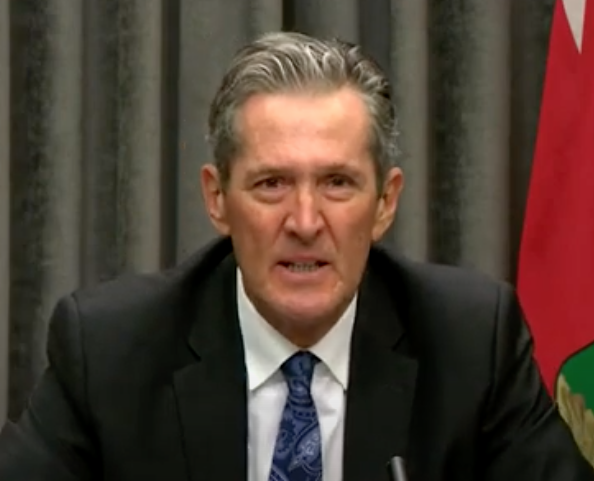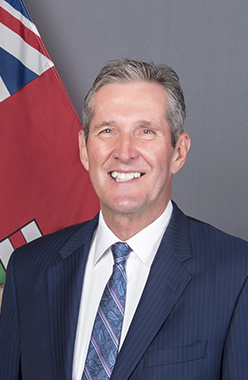“Restoring confidence won’t be easy … But let’s not forget how much is at stake”
June 21, 2010
Thank you for the opportunity to contribute to today’s conference. Let me start by apologising on behalf of Tony Hayward. He is genuinely sorry he can not be with you this morning, especially since there are so many good friends taking part in the conference.
But he and I hope you will understand that his schedule is under incredible pressure as a result of current events. He wishes you a successful conference and looks forward to catching up with you all on a future occasion.
I think everyone here recognises that the last few weeks have been extremely difficult for BP. On 20th of April many worlds were turned upside down with the terrible accident on the Deepwater Horizon drilling rig and the resulting oil spill in the Gulf of Mexico.
Eleven people died in the explosion and subsequent fire. And the spill has had a very serious environmental impact. It has been hugely shocking for us, for America, and for the rest of the world.
Everyone at BP is devastated, and we deeply regret what’s happened. Our hearts go out to those who have lost loved ones. And we are profoundly aware of our responsibilities to those people whose livelihoods and neighbourhoods have suffered. We are doing everything in our power to put the damage right, and to learn the lessons that will prevent anything like this happening again.
I’d also like to make it clear this is not simply about fulfilling our legal obligations – We feel a huge moral responsibility. All of us at BP will work tirelessly to clean up this spill, repair the damage and restore the Gulf coast communities.
For many years BP has been a part of those communities. Thousands of our employees live in the region, as do thousands more of our retirees. And caring about the communities in which we operate is a core part of what BP is about. As challenging as it may seem in the current crisis, we intend to prove it here too.
I’d like to think many of the distinguished guests in the room today—our partners in governments and national oil companies around the world—know this is central to BP’s values and actions.
And I’d like to thank you for the huge amount of support you’ve given us in our hour of need. We have received practical help from companies such as Petrobras, Saudi Aramco and Statoil, to name just a few. And I’m also extremely grateful for the many messages we’ve received which have encouraged us to stay strong and come through this crisis. You have my word that that is exactly what we plan to do.
When BP was asked to participate in this conference, we were invited to talk about “Key roles and responsibilities of an IOC in an age of uncertainty”. Since then, events have demonstrated just how great that uncertainty can be. And they are causing us to think very carefully about our roles and responsibilities.
So, whilst I will stay with the subject we were asked to discuss, I am sure you will understand if I look at it in the light of what has happened since April and of the wider industry context.
Deepwater Horizon
First let me give you an update on what is happening in the Gulf.
BP and its partners are fighting the spill on three fronts:
• In the sub-sea, we are doing everything we can to stop the leak at its source;
• On the surface, we are using every possible tool to contain and disperse the oil;
• and along the shoreline, we are deploying every possible measure to protect the landscape and clean it when needed
We continue to make progress. We are now containing and collecting up to 25,000 barrels of oil a day, and additional systems we are putting in place should have the capacity to contain up to 50,000 b/d and beyond in the coming weeks. Ultimately, we believe that the relief wells we are drilling will enable us to kill the well.
We have accepted that we are a responsible party, as defined under U.S. legislation. As such, we will do all we can to control the spill, clean up the environment and pay all legitimate claims. This is already the largest maritime response effort in history, involving thousands of vessels, over one hundred planes and more than 33,000 people.
Secondly, we have been clear from the outset that all resources available to BP should be applied to meeting our responsibilities. That is now underpinned by our agreement to devote $20bn to a claims fund to meet our obligations over the next several years.
And third, we are committed to being absolutely open and transparent in our communications with the government and the public.
The financial consequences of this incident will be severe, but BP is a strong company, with a strong asset base and strong balance sheet. We will meet our obligations.
The causes of the accident are still being investigated and it is too early to draw final conclusions, but there is no doubt that this terrible accident will have a profound impact not only on how we run BP, but also on the rest of the energy industry.
The bigger picture
So let me turn to the wider context in which we work and to the questions that you are focusing on at this conference.. How can we meet the world’s increasing demand for energy? What is the role of the IOC? And how can NOCs and IOCs best work together?
We all know that reliable and affordable supplies of energy provided the basis for economic growth throughout the 20th century. And the picture is no different at the beginning of the 21st. BP’s projections show that the world could need as much as 45% more energy in 2030 than today.
At the same time, the risk of climate change means we need to use energy more efficiently and diversify the energy mix with more low-carbon options.
But as the IEA and other experts have shown, fossil fuels will still be the dominant source of energy in 2030, even in a scenario where major carbon emissions are tightly constrained.
It’s a fact that if we are to meet this demand, our industry needs to find new reserves at new frontiers.
So for example, the industry needs to produce large volumes of unconventional gas.
The Gulf of Mexico incident has raised major questions about the risks that are faced at the industry’s frontiers, and specifically in deepwater. Restoring confidence won’t be easy. But let’s not forget how much is at stake.
Our recently published Statistical Review of World Energy shows how deepwater production from the Gulf of Mexico made the US the world’s fastest growing oil producer last year. US production went up by 7% or 450,000 b/d—with the Gulf now accounting for nearly 30% of the total.
Deepwater exploration and production off the shores of Brazil, West Africa and elsewhere, as you know, holds some of the greatest promise for meeting future demand.
This incident has been tragic, unprecedented, and extremely serious. It must mean changes in the way we work. But I don’t believe it should stop all further deepwater production.
Companies have been drilling wells in the deepwater Gulf for 20 years and until now they’ve been able to claim a strong safety record. It’s fair to say the whole industry regarded the risk of such an accident occurring as extremely low probability. Clearly all future risk assessments must plan for such low-probability, but very high-impact events.
And we must make other changes too. Investigations are still ongoing, but preliminary findings of our review indicate that this was a complex accident, caused by an unprecedented combination of failures in human judgement, processes, systems and equipment.
Certain imperatives already stand out.
1. We need better safety technology. The blow-out preventer is not the failsafe device it was thought to be.
2. We urgently need to develop more effective deepwater sub-sea intervention capability. We need better equipment and capabilities to deal with a blowout at this depth. The Exxon Valdez disaster 20 years ago prompted the industry to come together to create a significantly enhanced surface response capability. We need the same approach in the sub sea and BP intends to play a key role in making it happen.
3. We also need to revisit our business model to ensure that companies work with contractors in ways that mean risks are fully understood and managed.
It’s imperative to invest in creating a sustainable deepwater business. We must change the way we operate, and no doubt the regulatory framework will radically change too.
Like our peers in the IOC community, our business is built on operating at frontiers such as deepwater exploration, the Arctic, enhanced oil recovery and tight gas production.
By its very nature, operating at the frontier carries risks and this incident has been a major setback at a key frontier. But BP and its heritage companies have been in business for over 100 years, and we intend to continue providing the world with energy.
In looking ahead, we are also investing around $1bn a year in alternative energy. And we’re proud of the fact that more than 12 years ago BP was the first major oil company to call for precautionary action on climate change.
Safe and compliant operations and environmental responsibility have been central to what BP stands for, and Tony Hayward’s highest priorities during his three years as CEO. Amongst other things, that focus has led to a strengthening of our systems for safety and operational integrity.
As you can imagine, against that backdrop, it is very painful to find ourselves having to deal with this tragic accident. It is a test of BP, but I know BP will come through. I have worked in the company for 24 years and I can assure you its people are deeply committed to doing the right thing; to delivering safe, reliable operations within the communities where we operate.
Partnerships with NOCs
Across the world, we work with a wide range of partners, including many National Oil Companies.
Of course, NOCs and IOCs have different roots. NOCs originated as state organisations, serving national interests; while IOCs are private companies, serving their global shareholders’ interests. But in my opinion, the idea that their roles and priorities are vastly different, no longer holds true in the 21st century.
NOCs are rapidly expanding beyond their national borders and some are gaining new shareholders. At the same time, IOCs have recognised the importance of serving national interests in the places where they operate.
Over the years we at BP have worked increasingly closely with NOCs in many parts of the world.
It’s widely recognised among NOCs and IOCs alike that the issues we face are common to us all. No-one has all the answers and it makes sense to work together. Today we are privileged to work closely with many NOCs, combining our capabilities in the effort to discover and develop resources. These partnerships all take different forms because each project is unique.
Sometimes it is the case that our technological expertise is relevant to the resource base that a country hopes to develop and we can take on the technical and financial risks involved.
Libya is one such example. We have heard from Shokri Ghanem with whom our CEO had the honour three years ago of signing an historic exploration agreement. Not only was it the biggest deal of its kind for BP, it was the largest award of acreage made by Libya in a single agreement.
Elsewhere, our shared history becomes relevant. Later in the conference we’ll hear from a senior Iraqi representative about the vital role of energy in rebuilding Iraq. Here BP’s role is one that draws on the company’s experience when it was a partner in the Iraq Petroleum Company which discovered the super giant Rumaila field back in 1953. The knowledge we gained then and the understanding we acquired more recently in providing technical assistance are now enabling us to carry out a technical service contract to increase recovery rates at the field.
And within this contract we are also partnering with the China National Petroleum Company. While we bring our experience in large fields, CNPC brings its expertise in enhanced oil recovery and industry services.
And the link with CNPC illustrates the way that relationships can develop. BP has been involved in China since the 1970s and has invested nearly $5 billion there, forming many relationships with China’s NOCs. It was therefore a natural progression to work with CNPC beyond China’s shores.
Conclusion
It’s a huge privilege to work with the countries I have mentioned and with many other such valued partners. We are all part of a complex, diverse, inter-connected industry which is working around the clock and around the world to provide energy.
It’s within this context that the Gulf of Mexico incident has taken place and it is humbling and inspiring to see how the resources of the global industry have been harnessed in the response to it.
We have worked with partners in government and in industry to mount the biggest environmental response operation in history. Our efforts in the subsea are similarly collaborative—guided by what must rank as one of the most impressive collection of brilliant minds from the oil, gas, engineering industries, government, military and academia ever assembled in one place in peacetime.
Inevitably the issues often appear polarised and simplified when they’re portrayed night after night on the news. But the underlying story is more complex.
To give you one small example; An oyster harvester in Louisiana who has been affected by the spill pointed out that half of his family is in the seafood business, the other half in oil and gas. They have co-existed for 50 years.
That story highlights the interdependence of our industry and the society we serve. Society depends on the energy industry, and we owe a responsibility to society.
In fulfilling that responsibility, we will halt this spill, put right the damage that has been done, and rebuild confidence in BP.
In the current heated atmosphere, words are easily taken out of context. That goes with the territory. But I’d ask people not to take this whole event out of context. It was an unexpected and tragic incident that took place at the leading edge of our industry’s efforts to provide society with the energy it needs. We must find out exactly what went wrong and prevent a repetition. But we must not let it deter us from the wider, longer-term task of providing secure, sustainable, affordable energy for people around the world.
When the media have left the gulf coast, we’ll still be there helping the community recover. When the headlines are focussed elsewhere, we’ll still be cleaning up and dealing with claims for economic losses. And when the inquiries have been concluded and the consequent actions taken, I believe we’ll still be providing energy from remote and challenging locations.
I’d like to leave you with a line from the great American leader Abraham Lincoln, which I feel is appropriate to where BP finds itself today. He said: “I do the very best I know how—the very best I can; and I mean to keep on doing so until the end.”
Thank you.




